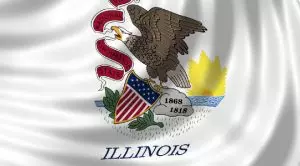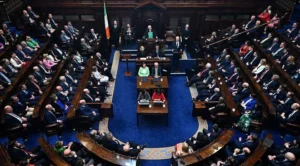 Three gambling establishments operating within the state of Illinois have filed a lawsuit against the Illinois Gaming Board. The plaintiffs claim the Video Gaming Act that is in force on the territory of the state unfairly favours video gaming terminal owners to the disadvantage of gaming parlours.
Three gambling establishments operating within the state of Illinois have filed a lawsuit against the Illinois Gaming Board. The plaintiffs claim the Video Gaming Act that is in force on the territory of the state unfairly favours video gaming terminal owners to the disadvantage of gaming parlours.
The lawsuit was filed by three video gaming cafés from Cook County, namely Stella’s Place, Dotty’s Café, and Shelby’s. According to the parlours’ owners, there are two provisions of the Illinois Video Gaming Act that are unconstitutional and detrimental to their business. The three video gaming cafés operate over a hundred strip mall locations in a total of 21 counties within the borders of the state of Illinois. However, one of the rules set forth by the Video Gaming Act requires the said parlours to split the profits they generate with Illinois companies that operate video gaming terminals.
The Video Gaming Act was passed in Illinois in 2009 but came into force several years later, in 2012. Needless to say, the introduction of the new regulations has lead to an upsurge of gambling operations on the territory of the state as becomes evident by the three parlours’ compliant which states that the number of licensed video gambling establishments in Illinois exceeds 5,800.
Prior to the enforcement of the latest regulations, gambling activities in Illinois were deemed legal only on licensed riverboats. Licenses were granted to ten riverboats, yet under the Riverboat Gambling Act which was in force back then, no boat was legally allowed to moor on the territory of Cook County.
The idea was to protect the horse-racing industry in the Chicago area that was booming at the time. Thanks to the most recent changes in the state’s legislation, businesses in Illinois are currently permitted to operate no more than five video gaming terminals, allowing customers to place real-money bets on blackjack, slots, and video poker, among other casino games.
According to the complaint, filed by the three parlours, the video gaming industry is thriving in the state, yet some of the provisions of the Act disincentivise local establishments from improving the gaming experience of their customers.
The said provisions stipulate that businesses in Illinois are prohibited from holding dual licenses that allow them to operate as both gambling establishments and video gaming terminal operators. In other words, a video gaming parlour is practically prohibited from owning the gaming terminals, located on its own premises.
Thus, gaming parlours are required to outsource their terminals with licensed and regulated video gambling terminal operators. Then again, the Illinois law requires terminal operators and gaming parlours to split their profits. The state law determines which party pays for what and which one is to collect a given percentage of the terminals’ profits. What is more, each video gaming operator is entitled to 50% of the post-taxation profits from each terminal.
The complaint argues that the Video Gaming Act forces terminal operators and licensed locations into contracts with one another without giving any consideration to each party’s relative expenses, investments and efforts, yet prohibits them from being able to negotiate the terms of the joint venture that has been imposed on them. According to the complaint, it is these provisions of the Act that “unfairly restrict the parties’ freedom of contract”.
The three plaintiffs also claim that the cost-splitting method, outlined by the Act, clearly works to the advantage of video terminal operators since it is the gambling parlours that are expected to invest their efforts into attracting players to the machines and maintaining interest on their behalf.
The plaintiffs went as far as to question the Illinois Gaming Board’s authority to decide on how profits and business costs should be divided between the terminal operators and video gaming parlours. According to the three video cafés, this is a violation of both the Illinois and US Constitutions. The plaintiffs insist on amending the Video Gaming Act so that it allows all participants in the video gambling industry in the state to negotiate the terms of their own contracts.
The three gaming parlours are represented in the courtroom by Dan K. Webb, an Illinois attorney from the Winston & Strawn LLP in Chicago. The Illinois Gaming Board is yet to comment on the lawsuit.
- Author


